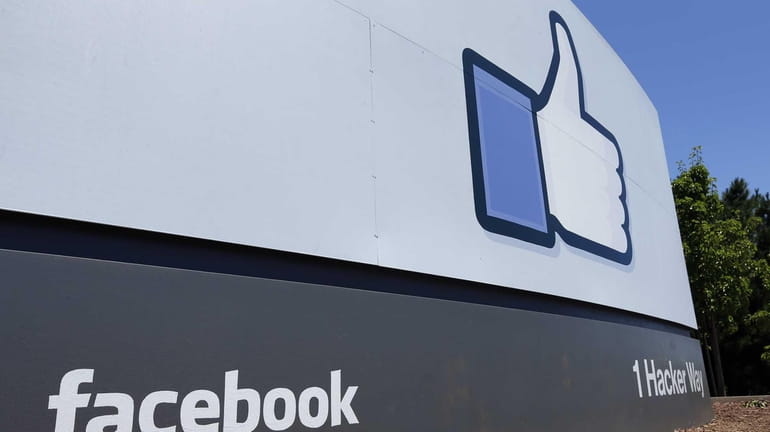Bauerlin: Students beware: Your dream college can see Facebook, too

A sign at Facebook headquarters in Menlo Park, Calif. Credit: AP, 2013
College-admissions officers are increasingly looking at information on applicants that has nothing to do with grade-point averages, SAT scores or extracurricular work. They want to know if a young person is going to make trouble or shows signs of bad behavior that could lead to bad publicity or a legal investigation.
The headlines terrify school administrators: Sexual assaults in the dorms (University of Kansas), racist graffiti (Fordham University), pseudo-racist hoaxes (Oberlin College), cheating (Harvard University), binge drinking (everywhere). The students involved may be smart, ambitious and accomplished. Yet they can still have poor judgment on a Saturday night, and their 20 minutes of stupidity or worse can affect the reputation of schools that have to deal with the consequences, which can include lawsuits and federal scrutiny.
So, more and more, officials are turning to Google and Facebook. That's the finding of the latest survey of admissions officers by Kaplan Test Prep. Of the 381 people at elite schools polled by Kaplan, 31 percent admitted to checking social- networking pages; 29 percent said they ran Google searches. That's a rise of seven and nine points, respectively, since 2011.
The tactic has paid off, too, with 30 percent of officers stating that they have discovered something that "negatively impacted" an applicant. Last year's news release from Kaplan listed the categories: "essay plagiarism, vulgarities in blogs, alcohol consumption in photos, things that made them 'wonder,' and 'illegal activities.'" Beyond Facebook Teenagers may think that if they avoid Facebook (which is supposedly for old people now anyway) in favor of social media such Instagram, Tumblr, Snapchat and even Twitter, they can escape detection by parents, future employers or school officials.
According to Kaplan, however, admissions officers are checking social media other than Facebook. And they will learn to dig deeper.
Most 18-year-olds have done dumb things in their short lives, of course, and a moment of beer-guzzling or copying answers doesn't mean it will happen again, but, officials ask, why take a chance? At selective colleges, the list of applicants is long, and if a compromising photo or incident helps them narrow the pool, they'll use it. More than that, the aim is self-protective. If a student commits an assault and there was ample indication on social media or elsewhere of a violent streak before the student was accepted, people will ask the dean of admissions, "How did you miss this?" Perhaps the scrutiny has a constructive side. A few more years of it and high school students shooting for top colleges will adjust. For most teenagers, social-networking sites and tools are a way to fashion and distribute their best selves -- best, that is, in the eyes of their peers. The party pictures, boastful expression, bullying and indiscreet revelations are there to impress friends and peers, and many teen users don't realize that the norms of adolescence sometimes repel grown-ups.
If they expect a college administrator to glance at their posts and page and form a life-affecting opinion, they'll alter the presentation. As application deadlines near, aspiring students will publish chronicles of charity work, commentaries on novels, notices of current events, and other bits to charm the reviewers.
Sure, the scrutiny may make them better at hiding what they don't want adults to see. It will produce the same hype and earnestness we get in personal essays and resumes in the application packet. Yet which is worse: social media that inflates the intellectual and moral credentials of the user, and makes them more careful? Or social media that reinforces the adolescent user's adolescence?
Mark Bauerlein is a professor of English at Emory University and the author of "The Dumbest Generation."
